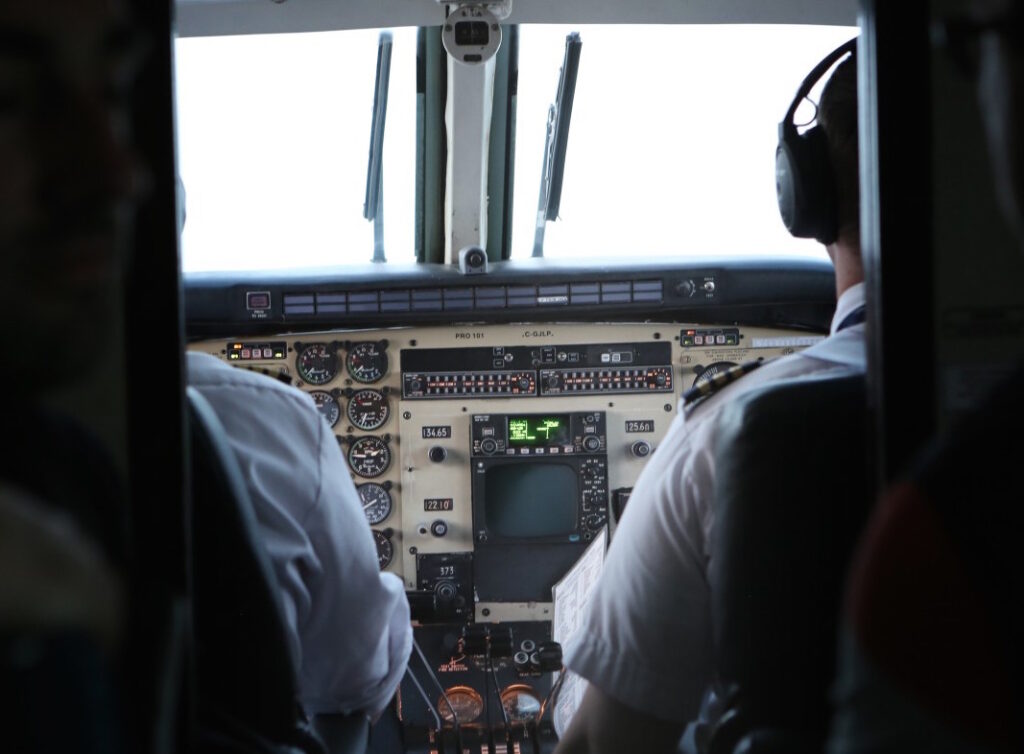There are lots of predictions about when driverless cars will arrive. If Tesla’s Elon Musk, Google and Volvo have their way, we’ll be using them in the next couple of years. Others make much longer predictions: it’ll be decades before “connected” self-driving cars are commonplace so they say. But is driverless technology such a new thing? Not really. It turns out it’s been doing the driving for us in a wide variety of places for quite some time.

Airplanes and airports
Passenger planes usually have some sort of autopilot system in place that relies on a series of sensors around the aircraft picking up information such as speed, altitude and turbulence. The autopilot processes that data and adjusts how the plane is flying.
It can do almost everything a human pilot can do but they don’t usually handle taxiing to the runway, the take-off or landing. However, in some newer aircraft, the autopilot is capable of landing the plane. In 2013, an unmanned aerial vehicle (UAV) completed a 500-mile trip from Warton, Lancashire to Inverness, Scotland under the command of a ground-based pilot, proving just what’s possible and perhaps on the horizon.
Stansted and Heathrow airports both have unmanned automated metro systems in place too, ferrying passengers to and from terminals.
Metros, the Underground and DLR
Most of us know that the Docklands Light Railway is automated, but did you know trains on the Victoria line run automatically from station to station? A driver is in the cab though, with responsibility for door closing, detecting obstacles on the track in front of the train and handling emergency situations though.
More automation is on the way. Transport for London has unveiled plans for the “New Tube for London”, a 250-strong fleet of driverless tube trains due for operation by the mid-2020s. No more rushing for the last tube or cramped and smelly night-bus journeys required.
Pop over to Barcelona or Copenhagen for a city-break and you’ll be whizzing around on their driverless metros at any hour of the day or night. In fact, the list of countries with automated urban metros is as long as your arm: Denmark, Spain, Italy, France, Germany, Switzerland and Hungary. That’s just Europe. The list goes on, as the rest of the world has plenty to offer too: the US, Canada, Brazil, India, Malaysia, Dubai, South Korea, Japan.

Is your car already driverless?
According to research by the Society of Motor Manufacturers and Traders (SMMT), 1.5 million cars a year now come with self-activating safety systems, and it’s only going to get more common.
For example, more than 1 million (39%) of all new cars have the option of autonomous emergency braking, which automatically applies the brakes to avoid or reduce the effects of an impact if the driver fails to react – and 18% of buyers have that tech as standard.
Around a third (31.7%) of new cars come with or offer blind spot monitoring and adaptive cruise control, which automatically adjusts a car’s speed to maintain a safe distance from vehicles in front. Barely five years ago, less than 10% of new cars had this kind of technology.
Mike Hawes, SMMT Chief Executive, said: “Fully driverless cars are still a long way off from everyday use, but this data shows advanced autonomous technology is already making its way into the majority of new cars.”
The future is now
So when will driverless cars arrive? Sooner than we think perhaps. It seems our most popular modes of transport already have a multitude of automatic safety systems and driverless capabilities. Some still have a driver but increasingly they’re taking on alternative duties during the ride and not doing the bulk of the driving. Even if our planes, trains and automobiles are not completely autonomous (yet), they’re certainly controlling our vehicles in various ways and taking decisions on our behalf – or at least reacting faster than we can to manage a particular situation for us.

